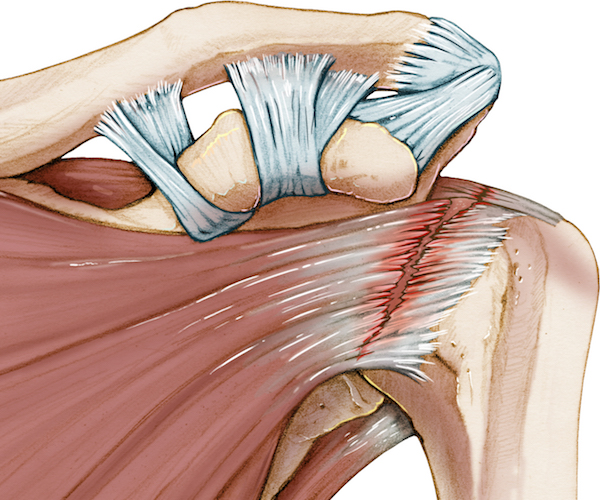Rotator cuff Pathologies

Rotator cuff is a group of muscles and their tendons which surround the shoulder joint and is responsible for its stability as well as wide range of motion.
The muscles forming the rotator cuff are:
Supraspinatus, Infraspinatus, Subscapularis and Teres minor
Various pathologies of Rotator cuff are:
- Tendinitis which is inflammation of the tendons
- Tendinopathy which is a degenerative condition characterised by loss of collagen in the tendons and neovascularization.
- Tears which are the breaks in the continuity of the tendons . These can range from small cortical or Bursal surface tears to complete teras of the tendons.
Bursitis is inflammation of these bursae . Most common bursae to get inflamed are the SASD bursa and the subcoracoid bursa.
Signs and Symptoms
- Shoulder pain which is dull aching type in character
- Painful and limited range of motion of the shoulder joint
- Local tenderness over the shoulder which may/may not be associated with swelling
- Snapping or crackling sound when moving the shoulder
- Night pain which often disturbs the sleep of the patient and inability to sleep on the affected shoulder
- Signs of impingement may be present
Risk Factors
- Work involving repetitive movements of the shoulder joint and excessive loading of the joint
- Trauma
- Sports related injuries
- Metabolic conditions like Diabetes Mellitis
JEEVISHA protocol for management of Rotator cuff pathologies:
- Work ergonomics correction: Changing the Ergonomics at work place to avoid undue load on the shoulder joint plays a very important role in management of these patients. Expert faculty at JEEVISHA analysis the problems and helps the patient bring changes in their daily life.
- Medications: In the initial course of the management of this condition, patients may be prescribed some Anti-inflammatory medications. Some other medications may be prescribed depending on the condition of the patient, which is individualized from patient to patient basis.
- Physiotherapy: Physiotherapy plays a very important role in fighting these painful conditions. With a team of dedicated physiotherapist, patient is further evaluated and accordingly a plan is prepared for first reducing pain with different modalities and then slowly rehabilitating shoulder for normal functioning.
Targeted treatment
- Ultrasound guided Platelet rich plasma injections in torn tendons
- Ultrasound guided Prolotherapy
- Ultrasound guided injections for Tendinitis
- Ultrasound guided Suprascapular nerve block
- Ultrasound guided Suprascapular nerve Pulsed Radiofrequency ablation